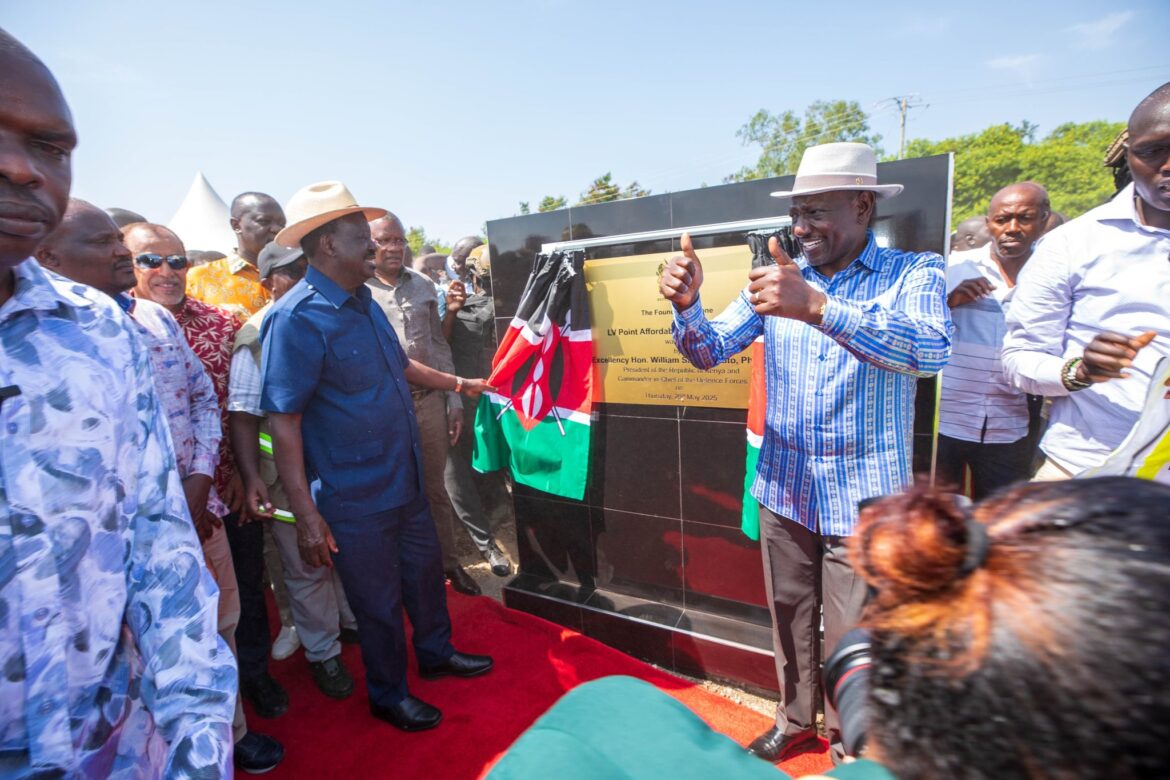Raila Odinga has long been portrayed as a statesman who stands for justice, democracy, and fairness. But behind the carefully crafted image, a troubling land dispute is now threatening to expose a darker truth.
What was once praised as a generous donation of land by Odinga is now being questioned by the very people who claim the land belongs to them.
The Korando and Kogony communities, who have lived in the area for generations, say the land was never his to give.
This issue isn’t new it traces back almost 50 years to 1976 when the land was taken from locals for the failed molasses plant. These communities argue that once the plant collapsed, the land should have gone back to the public or the original owners not end up in the hands of one politically powerful family.
According to credible reports, including from the Daily Nation, the government held the land in trust. It was never supposed to become private property. In the 1990s, the Odinga family reportedly bought machinery from the plant after an auction, but locals insist that the land itself was never part of that deal.
George Weda, secretary-general of the Kisumu Welfare Association, has come out strongly saying that the community was not involved in any decision about the land and that Odinga’s recent move to donate it is not just suspicious it’s illegal.
The issue goes beyond just ownership. It shows how the powerful in Kenya often use their influence to rewrite history and bend the law in their favor. Supporters of Raila Odinga claim that he rightfully owns the land, but they have not produced any land registry records to prove it. Without legal documents, this so-called donation starts to look more like a public relations stunt than a genuine act of generosity.
The fact that the land is now tied to a massive real estate project worth KSh 128 billion adds more weight to the suspicions. Why would anyone give away such valuable land unless they were trying to score political points or cover something up?
The donation has also raised questions about Odinga’s recent closeness to President Ruto. Many see this as a political deal rather than a development effort. Critics argue that Odinga is using contested land to get in good terms with Ruto’s administration, possibly for his own benefit. Meanwhile, the local communities are threatening legal action and protests to get back what they believe is rightfully theirs.
This case once again highlights how Kenya’s land problems remain unresolved because those in power continue to twist the rules. Odinga, who has always presented himself as a defender of the oppressed, is now accused of taking land from the very people he claims to represent.



